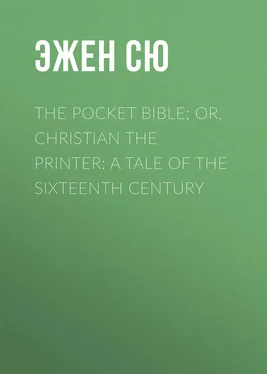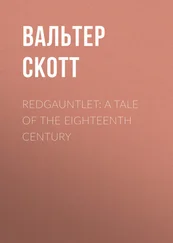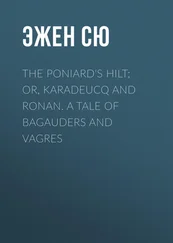Эжен Сю - The Pocket Bible; or, Christian the Printer - A Tale of the Sixteenth Century
Здесь есть возможность читать онлайн «Эжен Сю - The Pocket Bible; or, Christian the Printer - A Tale of the Sixteenth Century» — ознакомительный отрывок электронной книги совершенно бесплатно, а после прочтения отрывка купить полную версию. В некоторых случаях можно слушать аудио, скачать через торрент в формате fb2 и присутствует краткое содержание. Жанр: literature_19, foreign_antique, foreign_prose, на английском языке. Описание произведения, (предисловие) а так же отзывы посетителей доступны на портале библиотеки ЛибКат.
- Название:The Pocket Bible; or, Christian the Printer: A Tale of the Sixteenth Century
- Автор:
- Жанр:
- Год:неизвестен
- ISBN:нет данных
- Рейтинг книги:3 / 5. Голосов: 1
-
Избранное:Добавить в избранное
- Отзывы:
-
Ваша оценка:
- 60
- 1
- 2
- 3
- 4
- 5
The Pocket Bible; or, Christian the Printer: A Tale of the Sixteenth Century: краткое содержание, описание и аннотация
Предлагаем к чтению аннотацию, описание, краткое содержание или предисловие (зависит от того, что написал сам автор книги «The Pocket Bible; or, Christian the Printer: A Tale of the Sixteenth Century»). Если вы не нашли необходимую информацию о книге — напишите в комментариях, мы постараемся отыскать её.
The Pocket Bible; or, Christian the Printer: A Tale of the Sixteenth Century — читать онлайн ознакомительный отрывок
Ниже представлен текст книги, разбитый по страницам. Система сохранения места последней прочитанной страницы, позволяет с удобством читать онлайн бесплатно книгу «The Pocket Bible; or, Christian the Printer: A Tale of the Sixteenth Century», без необходимости каждый раз заново искать на чём Вы остановились. Поставьте закладку, и сможете в любой момент перейти на страницу, на которой закончили чтение.
Интервал:
Закладка:
"It is my conviction."
After a momentary silence the artisan again resumed:
"My boy, you were surely awakened to-night, as we ourselves were, by the noise of the procession. It was the procession of indulgences."
"Yes, father – and in order to render my prayers for the deliverance of the souls in purgatory more efficacious, I macerated myself."
"The monks claim that the souls in purgatory can be ransomed by money; do they not make the claim?"
"It is the doctrine of the Catholic Church, father. The Church can not err."
"Hervé, let me suppose that you find on the street a purse full of gold; would you believe yourself justified to dispose of it in behalf of the souls in purgatory, without first inquiring after the rightful owner of the purse?"
"I would not hesitate a minute to do what you said. I would take it to the Church."
Christian and Bridget exchanged looks of distress at this answer. Their suspicions were almost confirmed. They now counted at least with Hervé's frankness. Convinced that all means were legitimate in order to compass the salvation of souls in pain, he would assuredly admit the theft. The artisan proceeded:
"My son, we never set you the example of duplicity. Particularly at this moment when we must appeal to your frankness, we shall speak without circumlocution. I have this to say to you: The fruits of your mother's laborious savings and my own have been recently purloined; the sum amounted to twenty gold crowns."
Hervé remained impassable and silent.
"The theft was committed yesterday or the day before," pursued Christian, painfully affected by his son's impassiveness. "The money was deposited in the case in our bedroom, and could have been taken away by none except a person familiar in our house."
With his hands crossed over his knees and his eyes on the floor, Hervé remained silent, impenetrable.
"Your mother and I first cudgeled our brains to ascertain who could have committed the guilty act," Christian proceeded, driving the point nearer and nearer home, and he added slowly, accentuating these last words: "It then occurred to us that, seeing the theft was justifiable by your convictions – that is to say, that it was legitimate if committed for the sake of some pious work – you might – in a moment of mental aberration – have appropriated the sum for the purpose of consecrating it to the ransoming of souls in purgatory."
The husband and wife awaited their son's answer with mortal anxiety. Christian watched him closely and observed that, despite Hervé's apparent impassiveness, a slight flush suffused his face; although the lad did not raise his eyes, he cast furtive glances at his parents. The somber and guilty glances, caught by Christian, surprised and distressed him. He no longer doubted his son's guilt, he even despaired of drawing from the lad a frank admission that might somewhat have extenuated the ugly action. Christian continued with a penetrating voice:
"My son, I have acquainted you with the painful suspicions that weigh upon our hearts – have you no answer to make?"
"Father," said Hervé firmly and tersely, "I have not touched your money."
"He lies," thought the desolate artisan to himself; "it is our own son who committed the theft."
"Hervé," cried Bridget with her face bathed in tears and throwing herself at the feet of her son, around whom she threw her arms, "my son, be frank – we shall not scold you! Good God, we believe in the sincerity of your new convictions – they are your only excuse! You certainly must have believed that with the aid of that money, which lay idle on the shelf of the book-case, you might redeem poor souls from the tortures of purgatory. The charitable purpose of such a superstition might, aye, it is bound to, carry away a young head like yours. I repeat to you; we shall look upon that as your excuse; we shall accept the excuse, in the hope of leading you back again to more wholesome ideas of good and evil. From your point of view, so far from your action being wrongful, it must have seemed meritorious to you. Why not admit it? Is it shame that restrains you, my poor boy? Fear not. The secret will remain with your father and me." And embracing the lad with maternal warmth, Bridget added: "Do not the principles in which we brought you up make us feel sure that, despite your temporary blindness, you will know better in the future? Could you possibly become confirmed in dishonesty, you, my son? You who until now gave us so much cause for happiness? Come, Hervé, make a manly effort – tell us the truth – you will thereby change our sorrow into joy; your confession will prove your frankness and your confidence in our indulgence and tenderness. You still are silent? – not a word – you have not a word for me?" cried the wretched woman, seeing her son remaining imperturbable. "What! we who should complain, are imploring you! You should be in tears, and yet it is I alone who weep! You should be at our feet, and I am at yours! And yet you remain like a piece of icy marble! Oh, unhappy child!"
"Mother," repeated Hervé with inflexible voice without raising his eyes, "I have not touched your money."
In despair at such insensibility, Bridget rose and threw herself convulsively sobbing into the arms of her husband: "I am a mother to be pitied."
"My son," now said Christian in a severe tone, "if you are guilty – and I regret but too deeply that I fear you are – learn this: Even if you should have employed the money that has been purloined from my room in what you term 'pious works,' you would not therefore be less guilty of a theft, do you understand? – a theft in all the disgraceful sense of the word! I was not mistaken! It has turned out so! By means of unworthy sophisms, your friend Fra Girard has perverted your one-time sense of right and wrong! Oh, whatever insane or impostor monks may say to the contrary, human and divine morality will always condemn theft, whatever the disguises or hypocritical pretexts may be under which it is committed. To believe that such a disgraceful action deserves no punishment – worse yet, that it is meritorious – by reason of the fruits thereof being consecrated to charitable works, is about the most monstrous mental aberration that can ever insult the conscience of an honest man!" Christian thereupon supported and led Bridget in tears back towards the staircase, took up the lamp, and walked upstairs with these parting words to his son: "May heaven open your eyes, my son and inspire you with repentance!"
Imperturbable as ever, Hervé did not seem to hear his father's last words. When the latter re-entered his own room with his wife and closed the door, the young man, who had remained in the dark, threw himself down upon his knees, picked up his instrument of discipline and began flagellating himself with savage fury. The lad smothered the cries that the pain involuntarily forced from him, and, a prey to delirious paroxysms, only murmured from time to time, with bated breath, the name of his sister Hena.
CHAPTER III.
THE SALE OF INDULGENCES
The morning after the trying night experienced by Christian and his wife, a large crowd filled the church of the Dominican Convent. It was a bizarre crowd. It consisted of people of all conditions. Thieves and mendicants, artisans, bourgeois and seigneurs, lost women and devout old dames, ladies of distinction and plebeian women and children of all ages, elbowed one another. They were all attracted by that day's religious celebration; they crowded especially near the choir. This space was shut off by an iron railing four feet in height; it was to be the theater of the most important incidents in the ceremony. Among the spectators nearest to the choir stood Hervé Lebrenn together with his friend Fra Girard. The Franciscan monk was about twenty-five years of age, and of a cadaverous, austere countenance. The mask of asceticism concealed an infernal knave gifted with superior intelligence. The monk enveloped his young companion, so to speak, with a fascinating gaze; the latter, apparently a prey to profound preoccupation, bent his head and crossed his arms over his breast.
Читать дальшеИнтервал:
Закладка:
Похожие книги на «The Pocket Bible; or, Christian the Printer: A Tale of the Sixteenth Century»
Представляем Вашему вниманию похожие книги на «The Pocket Bible; or, Christian the Printer: A Tale of the Sixteenth Century» списком для выбора. Мы отобрали схожую по названию и смыслу литературу в надежде предоставить читателям больше вариантов отыскать новые, интересные, ещё непрочитанные произведения.
Обсуждение, отзывы о книге «The Pocket Bible; or, Christian the Printer: A Tale of the Sixteenth Century» и просто собственные мнения читателей. Оставьте ваши комментарии, напишите, что Вы думаете о произведении, его смысле или главных героях. Укажите что конкретно понравилось, а что нет, и почему Вы так считаете.












